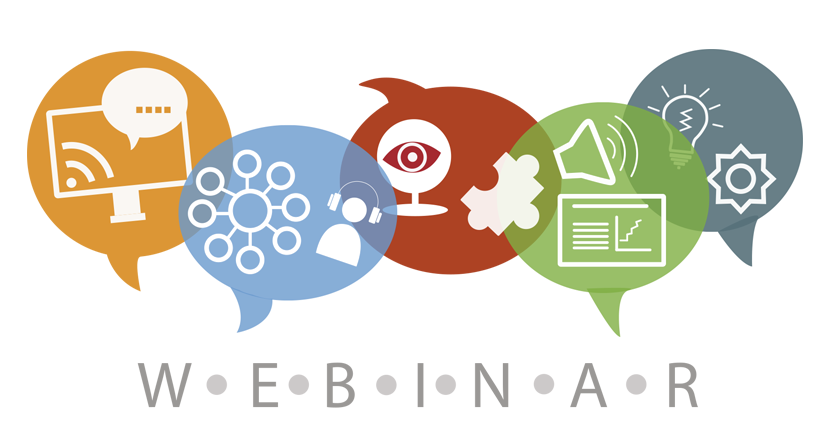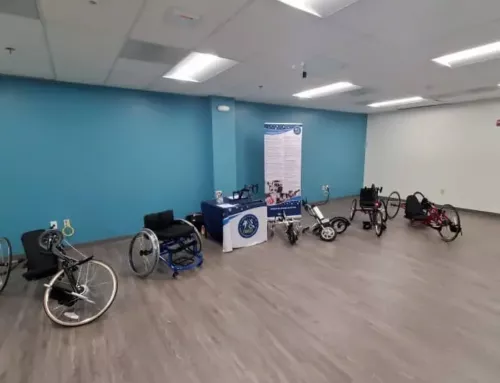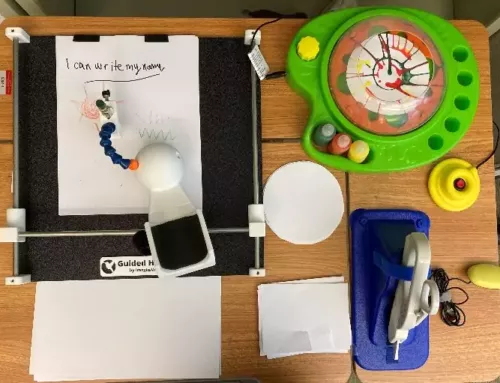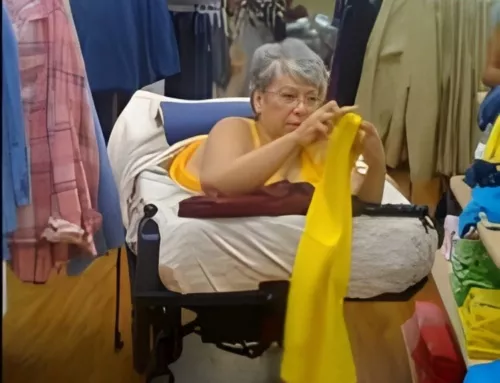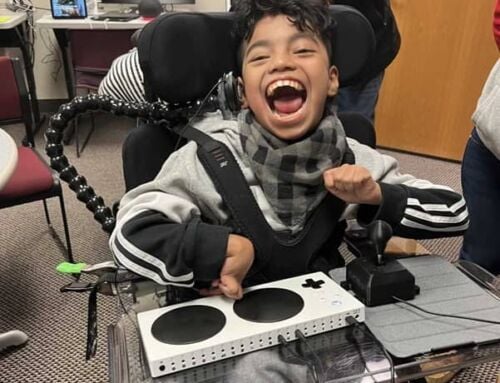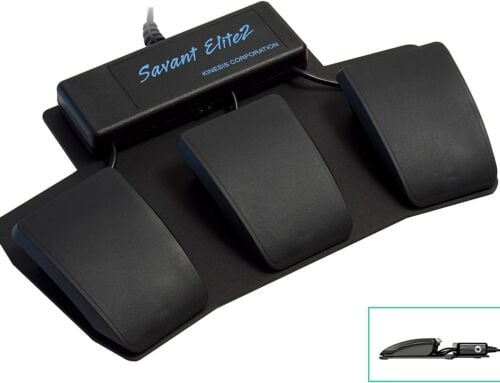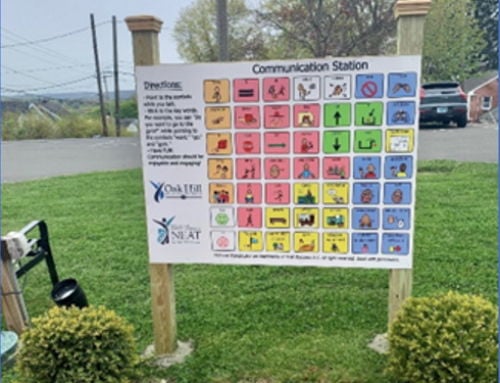Adaptive Design Greater Philadelphia: Cardboard, Kids and Community!
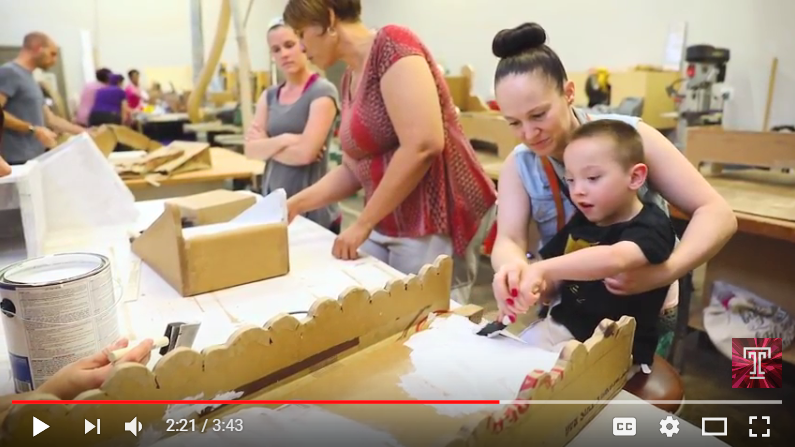
This year, Pennsylvania’s Initiative for Assistive Technology (PIAT) launched Adaptive Design Greater Philadelphia with funding from the Christopher and Dana Reeve Foundation. The project is training physical and occupational therapists to build fast, affordable seating and other customized solutions–entirely from cardboard–for children ages birth to six. It’s also creating a community of makers.

Mark Ovington and his mom, Andrea Krajci, in the Adaptive Design Greater Philadelphia workshop. Video credit: Temple University and Gina Benigno
The designs are strong and beautiful. The children who use them provide input to their creation. And the results are easy to love!
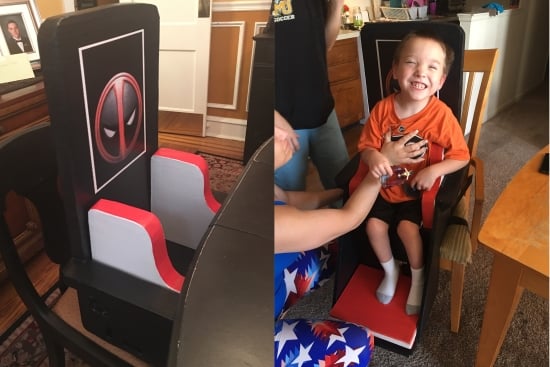
Mark Ovington’s Deadpool chair insert, an Adaptive Design Greater Philadelphia creation. Photo credit: Temple University
PIAT is the State AT Program (every state has one) and a program of the Institute on Disabilities at Temple University. The inspiration for Adaptive Design Greater Philadelphia came about when Amy Goldman, then director of PIAT, visited the Adaptive Design Association (ADA)’s workshop in New York City with colleagues.
It was early 2016 and Alex Truesdell, ADA’s executive director and founder, had recently won a MacArthur Fellowship and was attracting media attention for her work building assistive devices from tri-wall cardboard. “I was totally captivated,” Goldman recalls. “Alex is magnetic and the work she does is amazing.”
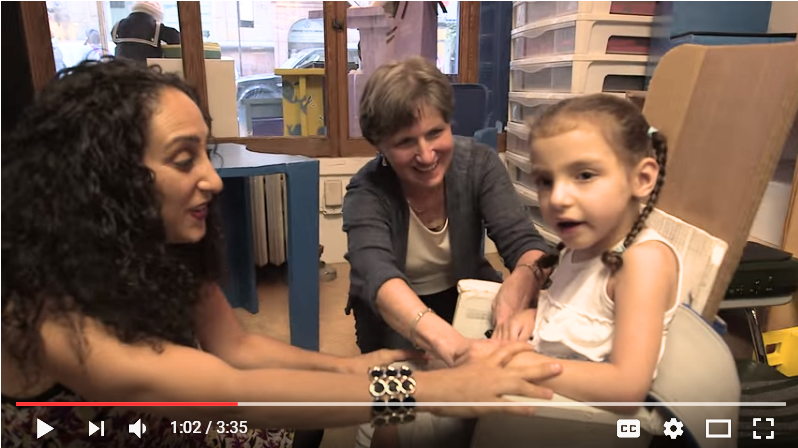
ADA Founder Alex Truesdell (center) assists a mother and her daughter to be fitted for adapted cardboard seating. Video credit: the John D. and Catherine T. MacArthur Foundation.
So when the Reeve Foundation announced its High Impact Innovative Assistive Technology grant competition in 2016, Goldman already had this project idea incubating, and leapt at the opportunity. She mobilized PIAT’s staff as a grant writing team, and brought other agencies into the process. “It was a perfect chance to get seed money and build our local capacity,” she says.
Now eight partners are learning ADA’s cardboard building techniques for serving specific children in their networks. They include Kencrest, Easter Seals, Temple Occupational Therapy, Jefferson Occupational Therapy, Temple Contemporary Art, Elwyn, the HMS School, and Blossom Philadelphia.
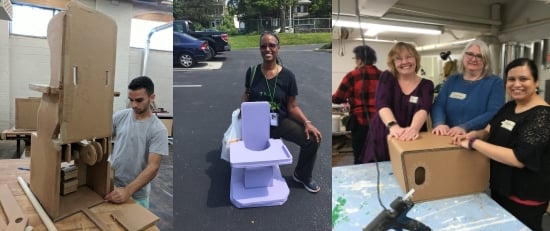
Adaptive Design Greater Philadelphia trainees with their projects. Photo credit: Temple University
“Our original proposal funded one cohort of 16 trainees,” Project Manager Russell Goldstein explains. “But after reviewing our submission, the Reeve Foundation encouraged us to increase our budget. And so we figured out how to double our capacity and goal.”
As a result, 34 trainees–made up of OTs, PTs, SLPs, designers and parents–are receiving three days of hands-on training with the ADA team in New York City and then two days in a makerspace in Philadelphia. There they fabricate AT for specific young clients beyond the initial training period.
The creations range from seating and positioning to some fairly unique adaptations identified by kids and families. For example, this WHYY article describes a customized attachment for playing wheelchair soccer. A minimum of 80 children will receive devices during the grant-funded period.
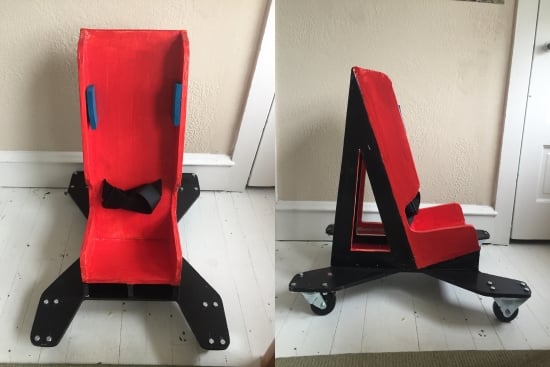
A unique customized scooter made from tri-wall cardboard and wood. Photo credit: Temple University
Beyond this year, Goldstein and Kim Singleton (the new director of Assistive Technology at the Institute) will be exploring fee-for-service options and further grant opportunities. “Already the project is gaining steady momentum,” Goldstein says. “People want to support something this exciting.”
They are especially delighted by the investment and enthusiasm of project partners and the unexpected ways the program’s design is expanding. For example, Blossom Philadelphia is now offering a space for the program to lay roots in exchange for paid apprenticeship opportunities for adults in their day program. Interested adults would receive training and employment with finishing, and help create devices for children in the agency’s inclusive daycare.
“The beauty of Adaptive Design is that there’s so much to do,” he emphasizes. “Adaptive Design can employ a range of skill sets, and the opportunity for growth is there. Apprentices who learn to finish devices may learn to become fabricators. So it’s an incredible opportunity to not only provide for people with disabilities but also to provide employment opportunities for people with disabilities. The project embodies our core values.”
Learn more about Adaptive Design Greater Philadelphia
Find your State AT Program
Monthly Blog Digest
Search the blog
State AT Program Blogs
California
Florida
Indiana
Kentucky
Louisiana
Maryland
Massachusetts
Michigan
Montana
North Carolina
North Dakota
Utah
State AT Program Blogs
The AT3 Center, the Association of AT Act Programs (ATAP), and the Administration on Community Living (ACL) make no endorsement, representation, or warranty expressed or implied for any product, device, or information set forth in this blog. The AT3 Center, ATAP, and ACL have not examined, reviewed, or tested any product or device hereto referred.

